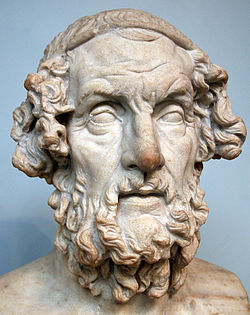~ “LETTERS FROM AMERICA” - by The Metaphysical Peregrine ~
Illegal immigration. The President and his political party, and their propaganda section, the Main Stream Media, would have everyone believe that the legislation passed in Arizona is blatantly racist legislation and against the Constitution. The hard cold fact is that all it does is enforce Federal law that’s already on the books, but the Federal Government, controlled by the Democrats, has not enforced it. True too is that the Republican Party when they were in power, refused to enforce the law, leaving Arizonians no choice but to protect themselves.
What they are protecting themselves from is rampant drug and gun running, murder, rape and robbery. On average three Border Patrol agents per day are assaulted. Phoenix is the kidnap capital of the country. On average every 35 hours, or about three people a day are kidnapped. How safe would you feel? One in five Arizona teenagers are doing drugs smuggled in from Mexico. Would you want your child exposed to this? Arizona has become a dangerous place to live, and its citizens live in fear.
Our director of Homeland Security, Janet Napolitano, denies there’s a problem. She said, “I say this again as someone who has walked that border.” “I’ve ridden that border. I’ve flown it. I’ve driven it. I know that border I think as well as anyone, and I will tell you it is as secure now as it has ever been.” The President of the US said it’s a racist issue, that the legislation, SB 1070 is unconstitutional, and has sent a legion of lawyers to begin Federal Lawsuits against the citizens of that State. Much of the wording in the Bill, by the way, is exactly the same that is in Federal Immigration Law.
The President of Mexico, Felipe Calderón, also has chimed in condemning Arizona. "Criminalizing immigration, which is a social and economic phenomenon, this way opens the door to intolerance, hate, discrimination and abuse in law enforcement." He added: "My government cannot and will not remain indifferent when these kinds of policies go against human rights."
Can you say ‘hypocrisy’? How does Mexico treat people without the proper papers in their own country? (Actually, even if you are properly documented, police will shake you down and have to be paid off.) The Mexican government bars foreigners if they upset “the equilibrium of the national demographics.” Racial profiling anyone? If you’re from another country and do not enhance the country’s “economic or national interests” or are “not found to be physically or mentally healthy,” then you’re not welcome. Make sure too you don’t show “contempt against national sovereignty or security.” (Mexicans in America have mass protests flying the American flag upside down, wave Mexican flags, chant anti-American slogans, and advocate the overthrow of the US government.) [ In Mexico noncitizens cannot “in any way participate in the political affairs of the country.”] If you apply for Mexican citizenship you must show a birth certificate, provide a bank statement proving economic independence, pass an exam and prove you can provide your own health care. Here, the Democrats and many Republicans just want to call amnesty and make all illegal’s citizens. A majority of those here illegally will vote Democrat, hence the term calling them “undocumented Democrats”. Illegal entry into Mexico is equivalent to a felony punishable by two years’ imprisonment. Document fraud is subject to fine and imprisonment; so is alien marriage fraud. Evading deportation is a serious crime; illegal re-entry after deportation is punishable by ten years’ imprisonment.
Law enforcement officials at all levels must enforce immigration laws, including illegal alien arrests and deportations. The Mexican military is also required to assist in immigration enforcement operations. Native-born Mexicans are empowered to make citizens’ arrests of illegal aliens and turn them in to authorities. Here, the Democrats and Obama administration say the local and state officials can’t enforce federal law, which is just stupid because all enforcement officials in all states enforce federal law all the time.
I could go on, but I’m sure you get the picture. One other thing, there are a large number of Central and South Americans rotting in Mexican prisons without due process because they were caught in Mexico without proper documentation.
We have a foreign President condemning a US State, and our own President and political party embracing that condemnation. These American officials swore to uphold the Constitution and laws of the United States and have refused to do so. Arizonians have decided to protect themselves as a result, and have gotten attacked by their own Federal government.
If you want to travel, pick Arizona. I lived there for a decade and it’s a beautiful place. Info
here. There’s also a ‘
buycott’ on FaceBook to counteract the boycott the Leftists have started. (Good grief, even Leftist elected officials in Arizona are advocating the boycott of their own state.)
An email going around here in the States:
Dear President Obama:
I'm planning to move my family and extended family into Mexico for my health, and I would like to ask you to assist me.
We're planning to simply walk across the border from the U.S. into Mexico , and we'll need your help to make a few arrangements.
We plan to skip all the legal stuff like visas, passports, immigration quotas and laws.
I'm sure they handle those things the same way you do here. So, would you mind telling your buddy, President Calderon, that I'm on my way over?
Please let him know that I will be expecting the following:
1. Free medical care for my entire family.
2. English-speaking government bureaucrats for all services I might need, whether I use them or not.
3. Please print all Mexican Government forms in English.
4. I want my grandkids to be taught Spanish by English-speaking (bi-lingual) teachers.
5. Tell their schools they need to include classes on American culture and history.
6. I want my grandkids to see the American flag on one of the flag poles at their school.
7. Please plan to feed my grandkids at school for both breakfast and lunch.
8. I will need a local Mexican driver's license so I can get easy access to government services.
9. I do plan to get a car and drive in Mexico , but I don't plan to purchase car insurance, and I probably won't make any special effort to learn local traffic laws.
10. In case one of the Mexican police officers does not get the memo from their president to leave me alone, please be sure that every patrol car has at least one English-speaking officer.
11. I plan to fly the U.S. flag from my housetop, put U S. flag decals on my car, and have a gigantic celebration on July 4th. I do not want any complaints or negative comments from the locals.
12. I would also like to have a nice job without paying any taxes, or have any labor or tax laws enforced on any business I may start.
13. Please have the president tell all the Mexican people to be extremely nice and never say critical things about me or my family, or about the strain we might place on their economy.
14. I want to receive free food stamps.
15. Naturally, I'll expect free rent subsidies.
16. I'll need income tax credits so that although I don't pay Mexican taxes, I'll receive money from the government.
17. Please arrange it so that the Mexican Government pays $4,500.00 to help me buy a new car.
18. Oh yes, I almost forgot, please enroll me free into the Mexican Social Security program so that I'll get a monthly income in retirement.
I know this is an easy request because you already do all these things for all his people who walk over to the U.S. from Mexico .. I am sure that President Calderon won't mind returning the favor if you ask him nicely.
Thank you so much for your kind help.
You're the man!!!






















